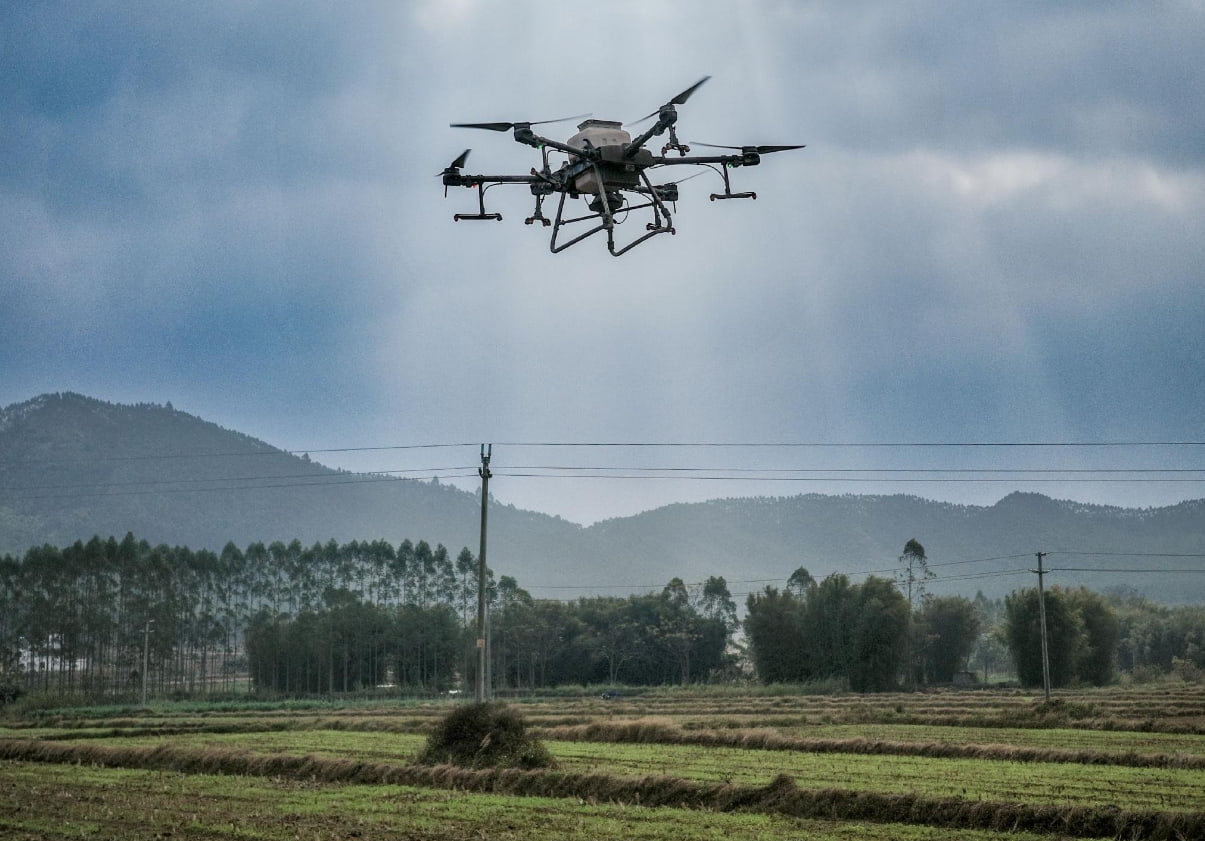Email :sales@beondt.com
Drones, once only used in the military field, are now redefining precision agriculture. Nowadays, the number of farmers using drones on their own farms is steadily increasing. Various drones provide them with low-cost aerial camera platforms. In this way, farmers can monitor crops in an economically effective way. In use, drones are used to capture crop images, which are later processed by specialized software to obtain reflectance images of farm crops.

Currently, there are more and more extreme weather conditions. Accompanying the growth of the world population is a huge increase in the consumption of agricultural products. Considering these circumstances, more and more farmers are expected to use drone technology. The use of drones in the agricultural sector has brought many benefits. But like any other technology, drones also have their advantages and disadvantages, which intentional buyers should be aware of before making a purchase.
Advantages of agricultural drones
1. Agricultural analysis
Drones can be used for soil and farmland analysis. With the help of drones, accurate 3D maps can be generated for analysis of soil properties, soil moisture content, and soil erosion, which are crucial for precision seeding in planting modes. Even after planting, the above information on farmland irrigation and nitrogen level management is very helpful.
2. Planting
At present, although drone planting is not yet common, some manufacturers have proposed system solutions that hope to shoot pods containing seeds and plant nutrients into prepared farmland soil, which will greatly reduce planting costs.
3 Monitoring
One of the biggest obstacles in agricultural production is the inability to efficiently monitor crops in large areas of farmland. The emergence of unpredictable weather patterns leads to increased risks and maintenance costs, making this obstacle even worse. Drones can be used to create time series animations that display accurate crop growth conditions, allowing for better management of crops by showcasing their precise growth processes.
4. Agricultural spraying
By using ultrasonic echoes and lasers, drones can adjust their flight altitude according to changes in terrain and geography. The ability of drones to scan and adjust their distance from the ground enables them to spray the correct amount of medication in real-time and evenly. This improves efficiency and minimizes the amount of groundwater infiltration. The use of drones for spraying has been proven to be faster than other traditional methods.
5. Irrigation
Drones equipped with thermal and hyperspectral sensors can identify parts of the field that have become dry, which can help people irrigate accurately and timely at specific locations.
6. Health assessment
Some drones can scan crops through visible light and near-infrared light, and the light processing equipment they carry can recognize the amount of green light and near-infrared light reflected by plants. These data are then used to develop multispectral images that describe the health status of plants. These images can be used to track the health status of crops and provide recommendations for remedial measures upon detecting any diseases.
7. Easy to deploy
Unlike traditional aircraft, drones are easier to deploy and have lower costs.
Disadvantages of agricultural drones
1. Flight time and range
There are also some issues with agricultural drones, with most drones having a short flight time, typically between 20 minutes and 1 hour. This flight time limits the area that each flight battery can cover. And the flight range also limits the radius within which a single drone can fly. Drones with longer flight times and larger flight radii are expensive.
2. Initial purchase cost
Drones that can be used in the agricultural field are quite expensive. The current cost of fixed wing drones is as high as $25000. There are also some drones whose high prices include hardware, software, tools, and imaging sensors.
Purchasing drones without relevant equipment is cheap, but the high cost of cameras and processing software that meet the requirements makes the difference between the two not significant. However, the cost of purchasing a complete set of agricultural drone equipment in the short term is high, but it is worth it in the long run.
3. Federal laws
According to federal law in the United States, drones used for agricultural purposes are considered commercial, which means farmers need to receive FAA operator training and obtain remote driving certificates or hire operators with such qualifications. The FAA also requires drones to fly at an altitude not exceeding 400 feet.
Interference within the airspace of 4
Agricultural drones and manned aircraft share the same airspace, making them susceptible to interference with each other. Therefore, it is recommended to submit a flight plan to the local airport or FAA before using the drone.
5. Highly affected by weather conditions
Unlike traditional aircraft, drones are more susceptible to the influence of climate conditions. If it is windy or rainy outdoors, the drone will not be able to fly.
6. Knowledge and skills
The images obtained by drones require professionals to convert them into useful information, which means that ordinary farmers may need to attend training or have to hire professional analysis software personnel to assist with image processing.
Drone technology is constantly improving every day, and as more and more manufacturers enter the industry, the cost of drones and related equipment will decrease. It is expected that limitations such as flight time and range will be addressed through technological improvements. This will enable farmers to gain more benefits from the use of drones.
Our hours
Mon to Fri: 9 AM - 7 PM (GMT+8)